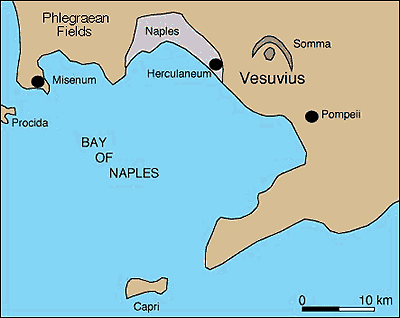Education Links
Leaving Cert
 Maths
Maths
 French
French
 English
English
 Chemistry
Chemistry
 Physics
Physics
 Biology
Biology
 Economics
Economics
 Spanish
Spanish
 Geography
Geography
 History
History
Junior Cert
6. Can eruptions be predicted?
In some cases volcanoes are 'well behaved' and we know a great deal about them. In other instances we know little of past behaviour and must rely on measurements that reveal increased activity. As in the case of the earthquakes, seismographs are used to detect movements within the earth's crust. Near a volcano increased activity causes minor earthquakes. In addition the gases expelled from volcanoes can be measured to detect change and satellite images may reveal warming trends.As with any hazard we must accept some risk and prepare ourselves for the inevitable. Everyone in Iceland and Hawaii realize that they are sitting on active volcanoes. However, others are likely to forget their history if eruptions occur infrequently. Over 2000 years ago one of Europe's most dangerous volcanoes, Vesuvius, erupted wiping out Pompeii.

Archaeological evidence suggests that the eruption was so sudden that victims died while sitting. It is generally accepted that eventually Vesuvius will erupt again - the question is whether the population of Naples is prepared.


